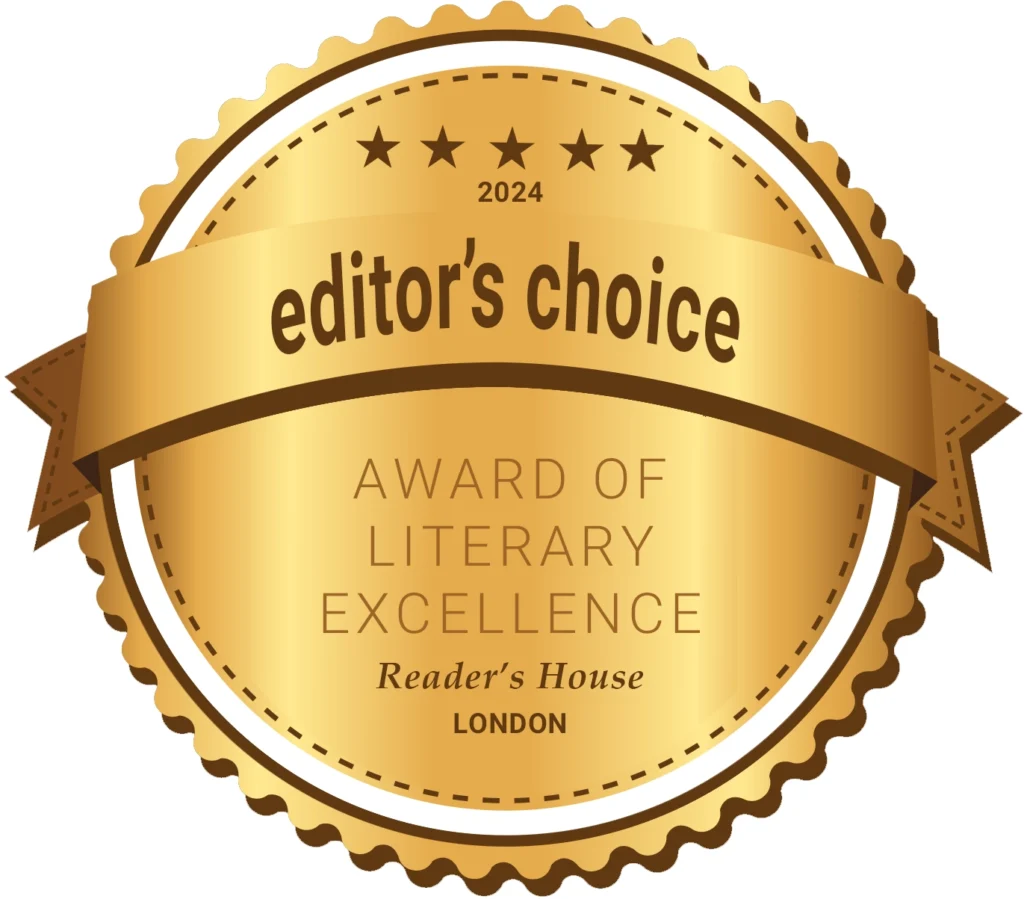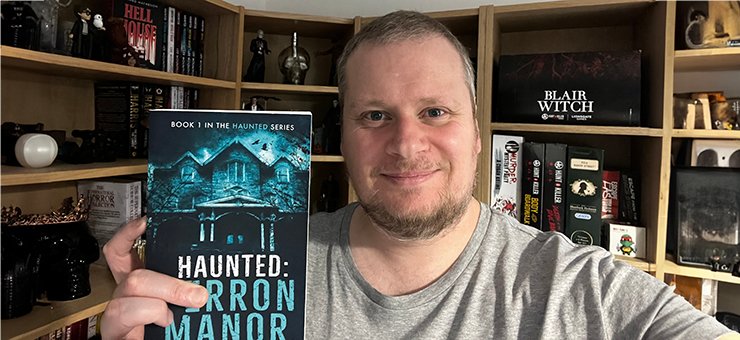From Best Sellers to Bumps in the Night: Lee Mountford’s Haunting Journey
Lee Mountford masterfully crafts chilling narratives that haunt readers long after the last page is turned, solidifying his status as a luminary in modern horror literature.
In the shadow-woven corridors of the macabre and the uncanny, Lee Mountford stands as a beacon of modern horror literature. From the eerie depths of English woodlands to the chilling confines of demonic hauntings, Mountford’s pen etches tales that have not only garnered critical acclaim but also captivated a legion of readers who dare to peer into the darkness. In this exclusive interview for Reader’s House magazine, we delve into the mind behind the nightmares, exploring the intricate labyrinths where his stories take root.
Hailing from the North-East of England, Mountford’s debut ‘Horror in the Woods’ emerged from the gloom in May 2017, quickly seizing the imaginations and fears of its audience. The subsequent release, ‘The Demonic’, cemented his reputation as a master of terror by ascending to Best Seller status in Amazon’s Occult Horror and British Horror categories. Yet, it is not just in the spectral whispers of his prose that Lee’s life is steeped in horror; it is a passion that blooms in the heart of his family life, a playful contrast to the hopes of his wife, Michelle, for their daughters, Ella and Sophie.
As we sit down with Lee, he unravels the threads of his journey as a reader and writer, revealing an unexpected admiration for Matthew John’s out-of-print ‘Zombie, Zombie’, and a recent, profound encounter with Shirley Jackson’s ‘The Haunting of Hill House’. His respect transcends genre boundaries, nodding to fantasy titan Brandon Sanderson for his contributions to the broader author community.
In a candid reflection on his craft, Mountford shares insights into his creative process, from the serendipitous sparks of inspiration to the disciplined art of outlining that transformed his writing career. His favorite haunts for writing—both literal and literary—emerge in our conversation, as do his strategies for maintaining momentum during the grueling marathon of novel writing.
But at the heart of every tale he weaves lies a commitment to the reader—a pledge to deliver not just a story, but an experience that haunts, horrifies, and ultimately satisfies those who brave his pages. Join us as we pull back the curtain on Lee Mountford’s darkly imaginative world, where every word is a shadow and every story a chilling journey into the unknown.
What’s your favorite book no one else has heard of?
Zombie, Zombie by Matthew John. I’m not sure if this one is in print anymore, but I own a copy that I read in my early twenties and I keep going back to it. It revolves around a group of teens trying to survive the zombie apocalypse, and shows the great lengths they to in order to relieve the horror, but also the boredom, and shows how humans always seem to fall back onto a cycle of behaviour, regardless of what is going on around them.
Are there any classic novels that you only recently read for the first time?
I read The Haunting of Hill House by Shirley Jackson for the first time this past year. I was very enjoyable. Obviously much more subtle than a lot of horror nowadays, but I really appreciated the psychological aspect of it, as well as the gut-punch ending. As much as I’d always been aware of the novel, it was the Netflix show of the same name that finally pushed me to read it, just to see where the overall inspiration from the show had come from.
Which writers — working today do you admire most?
I’m going to answer this one a little differently and mention an author I don’t actually read at all: Brandon Sanderson. I’m not much of a fantasy reader (though I do read it a little), but I have seen the great work Brandon has done for the author community, regardless of genre. He’s showing what can be done outside the tried and tested methods and paving the way in new frontiers for writers. I have to admire that.
What genres do you especially enjoy reading?
Being a horror author, it won’t be a surprise to find that horror is my favourite genre to read a swell. But I also really enjoy sci-fi and thriller, but tend to be drawn to the darker side of each of those genres.
What kind of reader were you as a child?
I was always drawn to ghost stories. Whether it was finding The World of the Unknown book in my school library, and being fascinated by it, or also rereading a collection I had that started with The Everlasting Club by Author Gray. I remember that story always scared the hell out of me. I also really enjoyed the Point Horror books, for obvious reasons. The stories I read were never too graphic back then, but usually creepy. I think one of the first books I ever owned was the children’s Ladybird edition of Dracula.
How do you come up with your ideas for your fiction?
There isn’t one set way, I just try to be as open as I can be and ready for inspiration to strike. As soon as it does, I make a note of the idea, so it isn’t lost to the mists of time. Even if it is just a quick note on my phone. Obviously reading other novels is a great way to get the creative juices flowing, and so is watching movies and television shows, even if they are other genres to horror (which I write in). Another place I find fantastic ideas is in videogames, as many of them create amazing world to explore, which I find gets my creative gears turning. Often, I find it useful to just let my mind wander and see what it comes back with, without putting pressure on needing to find an idea there and then. I feel that if you pressure yourself, it blocks the creative process.
What was the biggest piece of advice you received that helped with your writing?
Outlining. It was something I found online, and already knew of, but hadn’t tried. Prior to giving it a go, however, the hard drive on my computer was like a digital graveyard of unfinished stories, both short and novel length. I’d come up with ideas, dive in with great enthusiasm, and then everything would just kind of… stop. The ideas would run out and I’d find I’d written myself into a corner. It was only when I tried implanting outlining, because I was determined to actually finish something, that things became vastly easier. I don’t outline as fully as I did nowadays, but I still do to an extent, and it has been a gamechanger for me, as I’m now closing in on 20 full length novels at the time of writing.
Do you have a favourite place to write?
I do love writing in coffee shops. I know some people find the background noise distracting, but I find it helps, and I can usually get into my stride pretty quickly. Part of it, I think, is just getting out of the house and changing the scenery.
When writing, do you try to stick to a daily word count?
If I’m in the middle of writing a novel, I try to hit 1,500 – 2,000 words a day. If I fail on any given day, it’s not the end of the world, but I find having those targets really motivates me to keep going and get the book finished. Outlining helps, of course, because I usually never find myself with writer’s block or no idea where to go next. If I come up with an idea that would change my outline, however—which does often happen—then I can but a hold on things and change the outline to suit. It isn’t a hard and fast Bible. Inspiration can always change things and I try to make sure I’m not resistant to that change.
What is your primary goal when writing a story.
To satisfy the reader. Though I obviously write for myself, I’m aware that readers are going to be looking for certain kinds of things in my books. If it is a ghost story, then I want to make it as creepy as I can while delivering a good narrative. I know those kinds of readers want a book that will spook them, so I feel I have a responsibility to really try and deliver on that front. I would never write something I didn’t love, of course, but it has to straddle that line of being something I’m proud of, and something I think people will want to read.
Praise
All the while, Mountford keeps dropping these creepy, skin-crawling scenes on you and he does it with such a nice touch. There’s a slow build-up of dread, as he builds the characters and atmosphere and slowly unwinds the story. At times, he dangles you over the edge for a few moments before he plunges you over the edge. And this is where his storytelling is a cut above many of his peers. – Into the Macabre (Horror review website), Review of The Mark
The terror felt real to me, and that is a reaction that takes a lot of talent to evoke in a reader… The Atmosphere created was incredibly tense, and fear practically poured off the pages. – Horror After Dark (Horror review website), Review of The Mark
‘The Demonic by author Lee Mountford is a horror tour de force…It is scary. Truly scary.’ – Horrornovelreviews.com (Horror review website), Review of The Demonic
‘It’s been a long time since a novel actually scared me. The Demonic did just that.’ – Horror After Dark (Horror review website), Review of The Demonic
Follow the Author;
- Website: www.leemountford.com
- Amazon Author Page: https://www.amazon.co.uk/stores/author/B0716HDW6C/about
- Goodreads Author Page: https://www.goodreads.com/author/show/16816627.Lee_Mountford
- Facebook: www.facebook.com/LeeMountfordAuthor/
- X/Twitter: @LeeMountford01
- Instagram: https://www.instagram.com/leemountford01/
EDITOR’S CHOICE
“Haunted: Perron Manor delivers relentless suspense, chilling atmosphere, and a gripping narrative—a must-read for fans of haunted house horror.”
Lee Mountford’s Haunted: Perron Manor is a gripping descent into the depths of terror, blending classic haunted house tropes with fresh, spine-chilling twists. Sisters Sarah and Chloe’s unexpected inheritance of Perron Manor sets the stage for a haunting journey filled with dread and suspense.





